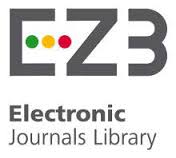NEW TECHNOLOGIES AND DATA OWNERSHIP: WEARABLES AND THE EROSION OF PERSONALITY RIGHTS
DOI:
https://doi.org/10.25245/rdspp.v6i1.444Abstract
As technology continues to evolve at an exponentially increasing pace, it transforms our lives and societies, thus shaping our perceptions of reality with high velocity and impacting the relationship between the individual, the society, and the legal system. The young area of law known as IT Law is attempting to explore the effects of new technologies in our relationships with the law, as well as, identify the best use new technologies to reduce the gap between new technology, new societal behaviours and various legal systems. Therefore, this article aims to make a contribution to the debate by introducing and describing the current use cases of wearable technology in Europe, legal issues that have been exacerbated by these emerging technologies. The article concludes that in order to mitigate the risk of erosion of personality rights new technology and innovation must to be integral components of the legal system in the future.References
Article 29 Working Party (2007) Opinion 4/2007 on the concept of personal data. Available via European Commission. http://ec.europa.eu/justice/data-protection/article-29/documentation/opinion-recommendation/index_en.htm. Accessed 16 May 2018
Article 29 Working Party (2012) Opinion 05/2012 on cloud computing. Available via European Commission. http://ec.europa.eu/justice/data-protection/article-29/documentation/opinionrecommendation/index_en.htm. Accessed 16 May 2018
Article 29 Working Party (2014a) Opinion 05/2014 on anonymization techniques. Available via European Commission. http://ec.europa.eu/justice/data-protection/article-29/documentation/ opinion-recommendation/index_en.htm. Accessed 16 May 2018
Article 29 Working Party (2014b) Opinion 8/2014 on the recent developments on the internet of things. Available via European Commission. http://ec.europa.eu/justice/data-protection/article-29/documentation/opinion-recommendation/index_en.htm. Accessed 16 Jul 2017
Ashton K (2009) That ‘Internet of Things’ Thing. RFID Journal. 22 June 2009. http://www.rfidjournal.com/articles/pdf?4986. Accessed 17 Jan 2018
Bartolini C et al (2016) Cloud providers viability: how to address it from an IT and legal perspective? Economics of grids, clouds, systems, and services. In: Altmann J et al (eds) International Conference on Grid Economics and Business Models (GECON), Cluj-Napoca, September 2015.
Lecture notes in computer science, vol 9512. Springer International Publishing, p 281
Bradley J et al (2013) Embracing the internet of everything to capture your share of $14.4 trillion. Cisco, http://www.cisco.com/c/dam/en_us/about/ac79/docs/innov/IoE_Economy.pdf. Accessed 21 Jan 2018
Cisco (2013) The internet of everything and the connected athlete: this changes … everything. http://www.cisco.com/c/en/us/solutions/collateral/service-provider/mobile-internet/white_paper_c11-711705.html. Accessed 21 Jan 2018
Clarke A, Kohler P (2005) Property law: commentary and materials. Cambridge University Press, Cambridge
Custers B, Uršič H (2016) Big data and data reuse: a taxonomy of data reuse for balancing Big Data benefits and personal data protection. International Data Privacy Law 6(1):4–15
Dvorak J, Moving Wearables into the Mainstream - Taming the Borg, 2008.
Ernst and Young (2015) Becoming an analytics-driven organisation to create value. http://www.ey.com. Accessed 10 Jan 2017
European Commission (2011) Privacy and data protection impact assessment framework for RFID applications. 12 Jan 2011
European Commission (2014) Data protection impact assessment template for smart grid and smart metering systems (‘DPIA template’). Expert group 2 smart grid task force. 18 Mar 2014
European Commission (2016) Commission staff working document, advancing the internet of things in Europe, SWD(2016) 110 final
European Commission (2017) Building a European data economy, communication from the commission to the European Parliament, the Council, The European Economic and Social
Committee and the Committee of the Regions, COM(2017) 9 final
Gartner (2016a) Forecast: wearable electronic devices, Worldwide. 19 Jan 2016
Gartner (2016b) Top strategic predictions for 2017 and beyond: surviving the storm winds of digital disruption. 14 Oct 2016
Hoeren T (2014) Big data and the ownership in data: recent developments in Europe. Eur Intellect Prop Rev 12:751–754
Kemp R (2014) Legal aspects of managing big data. Comput Law Secur Rev 30(5):482–491
Lessig L (1999) Code: and other laws of cyberspace. Basic Books, New York
Malgieri G (2016a) “Ownership” of customer (big) data in the European Union: quasi-property as comparative solution? J Internet Law 2016:3–18
Malgieri G (2016b) Trade secrets v personal data: a possible solution for balancing rights. Int Data Privacy Law 6(2):102–116
Mattei U (2000) Basic principles of property law: a comparative legal and economic introduction. Greenwood Publishing Group, Westport
Organisation for Economic Cooperation and Development (OECD) (2008) Committee for Information, Computer and Communications Policy (ICCP). RFID radio frequency identification OECD policy guidance: a focus on information security and privacy applications, Impacts and Country Initiatives
Purtova N (2015) The illusion of personal data as no one’s property. Law Innov Technol 7(1): 83–111
Robert Scoble, Yes, Google Glass Survives a Wet Shower (available at https://plus.google.com/+Scobleizer/posts/TcaqNeYJWXo#+ Scobleizer/posts/TcaqNeYJWXo).
Samuelson P (1999) Privacy as intellectual property? Stanford Law Rev 52:1125–1151
Schwartz Pa M (2003) Property, privacy and personal data. Harvard Law Rev 117:2056–2128
Stephen S. Intille / Amy M. Intille, New Challenges for Privacy Law: Wearable Computers that Create Electronic Digital Diaries, MIT House_n Technical Report, September 15, 2003
Victor JM (2013) The EU general data protection regulation: toward a property regime for protecting data privacy. Yale Law J 123(2):513–528




















